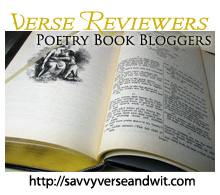Red Army Red by Jehanne Dubrow is a collection that is broken down into three, clear sections — Cold War, Velvet Revolution, and Laissez-Faire — with a preface section — Red Army Red — and one poem, “Chernobyl Year.” Dubrow’s narrator recalls the lives of American Diplomats in Communist-controlled Poland during the Cold War and pays homage to the Velvet Revolution in Czechoslovakia and the rebellion of youth before concluding in the commercialized freedom and excess of capitalism. Her poems are all at once playful, somber, and achingly real.
From "Aubade": (page 9) Often I lay awake to listen for my parents returning from the embassy, a key toothing the lock, the front door opening to let them in, its rusty hinges a metal warning. Every evening the same. I drank the words cold war from the water glass on my nightstand.
Her words echo even after the end of each line, and sometimes even in the middle of a line, leaving a haunting impression on the reader. In “Vinegar Aphrodisiac,” the narrator asks, “What’s sweet//without the wanting, the queue around the block/when even you are out of stock?” The lines for food in a communist society even when there is no more left, and the hope that there will be something there for them when they get to the front of the line. The wanting or the hope is palpable and heartbreaking. The poems in the first section eerily reflect the realities of the time, and there is a juxtaposition of the diplomat life with that of the Poles — “Each morning my mother’s velvet purse/wilted on a chair, empty of its midnight contents:/ruby lipstick, tiny lake of a pocket mirror./My father’s tie lay crumpled on the bed./The romance of objects–both their costumes/on hangers again, still clasping the scent/” (from “Fancy,” page 12)
There is unrest in the second section — the upheaval of adolescence marked by the rising up of workers and society against a communist society that fails to live up to expectation, a theme prominent in “Five-Year Plan.” A deep, unbidden want bursts forth in Dubrow’s lines as the communist Poles want release from their worker chains, so does the diplomat’s daughter want escape from the “crystal” world in which she lives just outside reality, yet feeling that reality keenly. Not entirely part of the communist world, but not completely outside of its empty promises. Always beneath the austere exterior in these poems, there is a burning passion waiting to explode onto the page, and while it may not happen in the same poem, explosions of light, sex, and want emerge of their own volition and when least expected.
Red Army Red by Jehanne Dubrow is a phenomenal collection that is bound to generate much discussion from book clubs, but it also speaks to the truths of ideals and realities and how they never meet expectations. In many ways, the collection comments overall on the “grass is always greener” idiom, but it also highlights the separation felt by a young woman growing up in a foreign land and having the freedom her country provides, but at the same time feeling the constraints of her host nation. Amazing use of imagery, politics, real events, and more.
About the Poet:
Jehanne Dubrow is the author of four poetry collections, including most recently Red Army Red and Stateside (Northwestern UP, 2012 and 2010). Her first book, The Hardship Post (2009), won the Three Candles Press Open Book Award, and her second collection From the Fever-World, won the Washington Writers’ Publishing House Poetry Competition (2009). Finishing Line Press published her chapbook, The Promised Bride, in 2007.
Her poetry, creative nonfiction, and book reviews have appeared in journals such as Southern Review, The New Republic, Poetry, Ploughshares, The Hudson Review, The New England Review, West Branch, Gulf Coast, Blackbird, Copper Nickel, Prairie Schooner, as well as on Poetry Daily and Verse Daily.
If you’re going to be in Boston for the AWP conference in March, you might catch Dubrow at a couple of panels.






